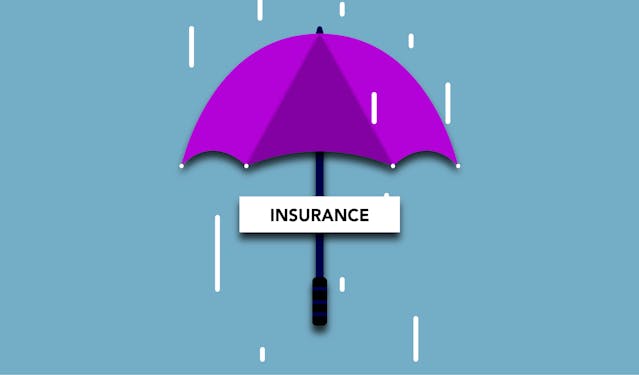Liability: Restaurant In South Carolina Now 2024

An alarming number of clubs and restaurants are closing their doors around the state; in Charleston alone, around ten have closed in the past month.
The tendency has been attributed by experts and owners to factors such as labor, food expenses, rent, and competitiveness.
And it’s uncommon that a conversation about closing local businesses comes to an end without bringing up liquor liability insurance.
A year has passed since proprietors of bars and restaurants in South Carolina informed The Post and Courier that the state’s system for obtaining liquor liability insurance could not continue.
Not much has altered. Annual rates for some owners are still rising far into the five figures.
Any company that sells alcoholic beverages in South Carolina is required to carry liquor liability insurance.
It shields establishments—which could be a restaurant, bar, live performance venue, or exclusive veterans organization—from liability for any destruction of property or injury caused by an inebriated person who was provided alcohol at the place.
The requirement that establishments serving alcohol after 5 p.m. hold at least $1 million in liquor liability coverage sets South Carolina’s legal framework apart from that of certain other states.
In 2017, a law mandating that sum was passed.
In the years afterward, laws in Charleston, Columbia, Greenville, Myrtle Beach, and other places have grown dramatically, placing increasing pressure on South Carolina businesses that serve alcohol in the evenings.
“Our prices increased threefold.
Forte Jazz Lounge proprietors in Charleston wrote on a website devoted to liquor liability in South Carolina, “Now we just work nonstop to be able to cover this outrageous premium.” “Sucks a lot of the joy out of finally doing what I’ve always wanted to do.”
As a result, the state’s bar, restaurant, and music venue industries started to raise alarms about the impending extinction-level event that could affect them
.
The reason behind the increase in rates
That 2017 bill is not the first in the discussion of how to improve the liability insurance market.
In 2005, a comprehensive compromise measure restricted the circumstances under which one of the parties to a multidefendant civil litigation would be compelled to pay the full sum awarded, a practice known as “joint and several liability.”
Twelve years later, the South Carolina Supreme Court decided that, on a strict reading of the statute, only defendants named in individual lawsuits might be required to pay damages.
This meant that those who had already reached a settlement with the plaintiff or who were never listed as defendants could not be included in the allocation of fault.
The decision determined that situations involving alcohol were not covered by South Carolina’s shared liability statute. Therefore, in cases involving alcohol-related personal injury and wrongful death, the defendant may be required to pay the full verdict even if they are only judged partially at fault for the incident.
Some claim that the state’s lax DUI regulations are making the issue worse.
Sentencing guidelines frequently do not take into account prior convictions for drunk or reckless driving, and the lengthy trial process naturally pushes prosecutors to reach .
Furthermore, in order to escape penalty, suspects are encouraged by South Carolina legislation to refuse to submit to a Breathalyzer test or blood sample. A suspect’s driver’s license is automatically suspended for six months if they refuse to undergo a Breathalyzer test, but the most crucial piece of evidence against them is their blood alcohol content at the moment of the arrest.
Critics contend that South Carolina’s statute defaults to the lowest level of alcohol content in the bloodstream, whereas other states presume that a suspect who rejects a test has the greatest level of alcohol in their system.
This means that an inebriated driver is essentially rewarded for refusing to submit to a Breathalyzer.
The result of these variables coming together was inevitable: South Carolina has made the climate for facilities that serve alcohol hostile and risky, making insurance companies afraid to deal with it.
Steamrolled out of control: Previously, the state had a large number of insurance providers ready to insure bars that served alcohol, creating the competition required to keep prices down.
Only a small number are still ready to operate within the state after many left.
As a result of fewer insurers bearing the majority of the risk, expenses have surged as businesses search for
to pay for any possible obligation.
Things are just going to get worse. According to a state study conducted recently and presented to lawmakers in the 2024 legislative session, insurers eventually pay out about $3 for every dollar they receive in claims.
Liability: Restaurant In South Carolina Now 2024

The hardest hurt are businesses whose sales are dependent on alcohol.
Jim Moring, a commercial real estate broker in Charleston who has been in the business since 1981, told The Post and Courier in September that one bar on King Street had witnessed an increase in rates from $5,000 to $40,000.
There are annual rates that exceed $100,000.
Moring remarked, “That has just kind of steamrolled out of control.” “Really, you can’t make a lot of money.”
The alarming alcohol liability environment in South Carolina has come to light as a result of several high-profile cases.
They illustrate the situations where liquor liability insurance kicks in and the settlements that bars and their insurance providers end up with.
One concerned Samantha Miller, who was slain on a golf cart with her new husband, Aric Hutchinson, by an alleged drunk driver as they were leaving her Folly Beach wedding reception.
A lawsuit was filed after the bride’s death in April 2023. Hutchinson claimed that the lady who was charged with driving under the influence when she ran down 34-year-old Miller and hurt her, as well as two other people, had received excessive amounts of alcohol from four nearby establishments.
According to the complaint, the establishments violated their duty of care to the public and their customers by serving alcohol to the 25-year-old driver after they knew or should have known she was intoxicated.
A judge authorized settlements in June from the Folly Beach bars Snapper Jacks, the Crab Shack, and The Drop-In, as well as from Progressive auto insurance and Enterprise Rent-A-Car.
Taco Boy’s plea to be removed from a lawsuit that claims the bride’s death on her wedding night was caused in part by the Mexican taqueria was turned down. The legal action is not yet over.
Alex Middaugh’s murder trial involved a case involving liquor responsibility.
Parker’s Kitchen, a network of convenience stores with headquarters in Georgia, was named in a lawsuit pertaining to the Beaufort County boat accident in 2019 that claimed the life of Mallory Beach, 19.
The collision contributed to the collapse of South Carolina lawyer and disbarred Murdaugh, who was found guilty of two murders.
outlets in South Carolina were accountable for Beach’s murder since the boat’s driver, Paul Middaugh, the youngest son of Alex Middaugh, was selling alcohol at one of its Ridgeland shops using his elder brother’s identification at the time, and he was 19 years old.
Parker’s Kitchen consented to pay $15.5 million to resolve the wrongful death lawsuit in July 2023.
The majority of the funds, $15 million, came from Parker’s Kitchen’s insurance company.

Due to concerns from bar and event owners, the issue of liquor liability insurance dominated state politicians’ minds during the 2024 legislative session.
A committee was established to investigate the factors influencing the high insurance costs in the state across all industries, including homeowners near the seaside and the liquor industry.
In February, lawmakers proposed a “incentive program” with the goal of luring insurance companies back to the state of Palmetto. By a vote of 106 to 2, the bill was approved.
It would have reduced the amount of liability bars that would have to be held based on the level of “risk” they presented.
It was never heard in the Senate, where a different reform bill was killed in the last moments of the session.
Groups representing the hospitality sector, such as Save SC Venues, worked to amend the state’s joint and several liability statutes, which assign liability for any insurance claim relating to a business or industry.
Industries outside of pubs and restaurants have long pursued them for reform.
S.533, often known as the S.C. Justice Act, would have undone.
the groups and others contended that South Carolina’s joint and several liability rules should exempt alcohol.
This legislation would have allowed for a distinction in deciding who is at responsibility and clarified the laws surrounding the determination of liability in cases involving companies that serve alcohol.
To put it briefly, the state Senate bill would have increased the barriers for plaintiffs’ lawyers suing establishments that are judged to be only partially at fault for occurrences, such as cases involving intoxicated drivers.
Theoretically, this might result in lower claim payouts, which would lower insurer costs as well.
In the end, the firms might reduce premiums for bars in order to pass along those cost savings.
The S.C. Justice Act fizzled out in April following a group of twenty-three senators.
Its opponents contended that it would harm victims by making it more difficult for them to recover and that it would fail to address the part played by insurance companies in escalating the problem.
Others claimed that since the state does not oversee liquor liability insurance, insurance companies would be free to set exorbitant prices.
Where we are now: Throughout the summer, proponents of change in the hospitality sector persisted in their demands.
Despite their best efforts, no more hearings on the matter were scheduled as of this writing; the only one that was scheduled was for September 19 in Columbia.
It is probable that the 2025 legislative session will prioritize the issue of liquor responsibility.
In a gaggle of reporters at the Columbia Convention Center on September 12, Gov. Henry McMaster stated:
shortly, and he is in favor of it.
“There needs to be changes made to the way joint several liability operates in our state,” he declared. “Because it is forcing many people to close down by driving up insurance premiums.”
When The Post and Courier pressed McMaster to elaborate, he did not specify which solutions he would support.
“The best way we can, as soon as we can,” he declared.
Beloved businesses like Palmetto Brothers Dispensary in Laurens, Old Rock Quarry Winery in Entrée, and Blind Horse Saloon in Greenville are closing due to liquor liability insurance, even as legislators debate the appropriate course of action.
READ MORE:
1. Health and Fitness Tips for You
2. Upcoming New Movies
3. Get New Jobs Directly From Companies FREE Visa
4.Latest News of Cryptocurrency and Bitcoin
5. Real Estate Business for you
6. Latest News
7. Best Insurance Policy for Everyone
READ MORE:
- 1. Strategic Management Process: Top5 Jobs In Dubai FREE VISA Apply Now
- 2. Vancouver Time fighting for $12,000 in travel insurance Nightmare FREE
- 3. DIABETIC DIET : A PROFESSIONAL’S GUIDE TO A WARM AND WELL-BEING
- 4. NICOLAS CAGE STATES : HE HAS 3 OR 4 MORE MOVIES LEFT NOW
- 5. EMPRESS CRACKS: FOR THE FIRST TIME SINCE APRIL
- 6. DESPITE MEANING: DESPITE HIGH RATES, MORE US HOME BUYERS ARE WILLING TO BUY
- 7. A 44-YEAR-OLD BOSTON WOMAN WAS KILLED BY A SHARK ATTACK IN THE BAHAMAS WHILE ON VACATION







